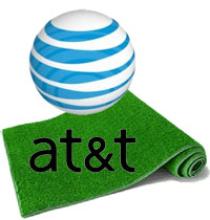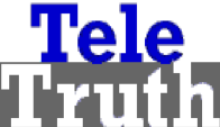Fast, affordable Internet access for all.
astroturf
Content tagged with "astroturf"
AT&T Stumbles in Purchase of "Grassroots" Support
Another Example of Regulatory Capture
As you observe (or hopefully, participate in), the debates around network neutrality or universal service fund reform, remember that many of the loudest voices in support of industry positions are likely to be astroturf front groups. Between extremely well-financed astroturf organizations and industry-captured regulatory agencies, creating good policy that benefits the public is hard work. It helps to study how industry has gamed the FCC in the past -- as documented by David Rosen and Bruce Kushnick in a recent Alternet article.
At the risk of being sarcastic, we can thank the FCC for working with the industry to make our phone bills to easy to read - an example is available here.
Opelika Votes Yes, Will Build Smart-Grid Fiber Network
It’s a great day for Opelika. It’s a great day for our future. It’s a terrible day for Charter,”One gets the sense that the Mayor took some umbrage at Charter's tactics to prevent the community from building its own network. The day before the election, Stop the Cap! ran a fantastic article about Charter's manufactured opposition to the community network. Phillip Dampier investigated the background and claims of prominent opponents, including Jack Mazzola, who might as well have written some of the articles in the local paper about the Smart-Grid project for how often he was quoted by the reporter (who often failed to offer a countering view from anyone in support of the network).
Jack Mazzola claims to be a member of Concerned Citizens of Opelika and has become a de facto spokesman in the local press. He claims he is “30 years old and have been a resident of Opelika for almost two years.” During that time, he evidently forgot to update his active Facebook page, which lists his current city of residence as Atlanta, Georgia. Suspicious readers of the local newspaper did some research of their own and claim Mr. Mazzola has no history of real estate or motor vehicle taxes paid to Lee County, which includes Opelika.Any community considering a referendum on this issue should read this Stop the Cap! post and learn from it because massive cable companies like Charter all use the same tactics in community after community.
Rules Matter - Network Neutrality and Transparency
Person A: No company would violate network neutrality. Person B: What about Comcast, Cox, RCN, and the famous Madison River Communication? Person A: Those don't count.Aside from the absurdity, the larger problem is that we do not always know when companies are violating network neutrality. Comcast was violating network neutrality for at least a year before tech journalists successfully outed the practice. Over the course of that year, many subscribers called Comcast and asked why they were having problems with certain applications. Comcast lied to them and said the company was not interfering with them. When finally backed into a corner with incontrovertible evidence, it admitted it was.
More Astroturfing Shenanigans
This claim that their membership list is stocked with "consumer groups" turns out to be as bogus as their stated goals, given there's not a single viable consumer advocacy firm among the group's 100 members. BfA [Broadband for America] does, however, include dozens of "co-opted" minority, disability and other industry-funded groups. Said groups are used by lobbyists to pretend the interests and opinions presented to lawmakers have broad public support, and aren't just the monotonal whining of a handful of corporations interested solely in protecting revenues. For example, a group that needs funding for a new events center will agree to parrot Verizon policy positions in public press releases. The National Association of the Deaf [NAD] did as much for the baby bells when Verizon and AT&T were trying to eviscerate existing TV laws, even though the law the group was busy cheerfully supporting resulted in cherry-picked next-generation broadband deployment for NAD's constituents.Photo used under Creative Commons license - thanks to flickr's limonada.
More Short Shots
There are so many interesting articles recently (some are actually a bit older than recent, I guess).
- How did Sweden get so connected? BuddeBlog took a look at how Sweden has invested so greatly into advanced fiber networks. This short post looks at factors from geography to government policy that have helped.
- Andrew Cohill, an advocate of both fiber and wireless networks, offers a simple explanation for why wireless can only be part of the solution to the problem of universal broadband. Wireless just cannot provide the same high reliability and speeds of wired connections.
Following up on yesterday's call on the FCC to stop ignoring muni broadband, Karl Bode observes:
Interestingly, of the 51 "constituents" brought in for the 8 most recent workshops, just five don't work for a corporation -- and zero of them act as witnesses for consumer interests (so clearly, you've got your work cut out for you).
And finally, Timothy Karr at Free Press has been unmasking astroturf groups funded by major carriers. Learn more with this fun widget (available here).
Wolves in Sheep's Clothing





